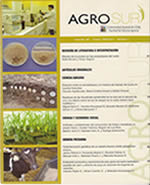Color in food as a measurable quality criterion
Main Article Content
Abstract
The importance of color as a physical and quality parameter of foods demands for objective measurements to obtain comparable and reproducible data. Color is influenced by many factors, such as illumination, reference observer, light spectra, presence of pigments or the own characteristics of surface, size, texture and brightness of the sample under analysis. Today due to increased expectations imposed on foods with respect to quality and safety norms, there is an urge to determine quality precisely, rapidly and objectively. Computerized vision provides a variant of automatized, non-destructive and economically viable measuring technique that can achieved this demand. Therefore, in this work, the physical, psychological and physiological characteristics that can explain the nature of color and enable its quantitative and objective measurement have been presented. Descriptions related to the science of color have been included besides the technical applications currently used in the food industry.

